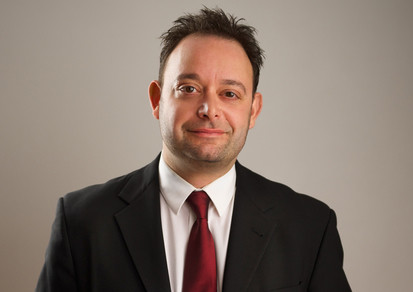Don’t forget Venezuela
If I had to pick the most repugnant image of 2018, it would be the video from last September featuring Venezuelan dictator Nicolás Maduro sitting down to a sumptuous meal.
As Venezuelans starve because of the policies of his illegitimate regime, Maduro was pictured in one of Istanbul’s top restaurants, a fat cigar dangling from his mouth and his portly frame stuffed into a luxurious chair. Turkish celebrity chef Salt Bae expertly sliced juicy cuts of prime steak onto a plate for the dictator to consume with a gusto that was obscene, given that ordinary Venezuelans struggle to find basic ingredients to make arepas, the maize flour cakes that are a staple of their diet.
Maduro was not on vacation, of course. His lavish dinner at Bae’s restaurant was part of his third visit to Turkey last year, while in December, Turkish President Recep Tayyip Erdoğan was feted in Caracas, the Venezuelan capital. Much as there was a special place in the heart of Hugo Chávez, Maduro’s predecessor, for the former Iranian President Mahmoud Ahmadinejad, so it is with Maduro and Erdoğan.
Last July, the bromance heated to the point that Maduro hailed Erdoğan as “the leader of the new multi-polar world.” The occasion was Erdoğan’s swearing-in ceremony for a second term as Turkey’s president, but this time with vastly expanded powers. In Venezuela, Maduro has accumulated similar powers, but with a gangster-like brazenness that makes even Erdoğan look subtle.
Reelected as president in 2018 in an election boycotted by the fragmented Venezuelan opposition — a good part of which was barred from participating in the first place — Maduro’s victory was the crowning moment of a power theft that he launched the previous year, when he replaced the country’s elected parliament with a stooge assembly composed of his own supporters.
A Venezuelan friend once told me jokingly that he missed the days before Hugo Chávez’s seizure of power in 1999, when his country had a reputation for being the most “stable, and therefore boring” in Latin America. In nearly 20 years of rule by Chavismo — an ideological culture of Bolivarian nationalism, socialism and political paramilitaries fostered by Chávez, a former army officer — the oil-rich country became Latin America’s Zimbabwe, a potentially prosperous nation ruined by a gangster president.
Nothing symbolizes that ruin better than Venezuela’s hyperinflation. In the 12 months leading up to November 2018 — a period that included Maduro’s dinner in Istanbul — hyperinflation reached a breathtaking 1.3 million percent. By the end of the year, prices of basic goods doubled every three weeks on average.
Come Christmas, the vast majority of Venezuelans were unable to find the one month’s wages necessary for a ham bread, a traditional holiday dish. As a new year begins, the vast majority cannot afford to purchase food, toiletries and clean water in a country that, at the height of Chávez’s rule 10 years ago, boastfully presented itself as an alternative model to corrupt, U.S.-dominated capitalism.
In a harbinger of what was to come, under Chávez, Venezuela’s Jewish community of 20,000 shrank to less than 7,000, harassed out of their homeland by the anti-Semitic, “anti-imperialist” rhetoric of a regime that presided over the community’s economic immiseration at the same time.
Over the last five years, 3 million Venezuelans — about 10 percent of the population — have fled the country, creating a painful humanitarian crisis in our own hemisphere. The majority of refugees have gone to Colombia, as well as Ecuador, Peru, Chile and Brazil. The fate that awaits them consists of unemployment, dubious legal status, exploitation by criminals and a hostility from the locals that increases as the number of Venezuelans seeking refuge swells. How terrible can it be inside Venezuela when this bleak existence is regarded by so many of its citizens as preferable to remaining at home?
In terms of U.S. policy, we have at least reached a point where the Obama administration would never have ventured. U.S. President Donald Trump’s administration has abhorred Maduro’s power seizure by stigmatizing his regime as an illegitimate one. On Jan. 8, the United States imposed sanctions on seven individuals and 23 entities involved in a corruption scheme that took generous advantage of Venezuela’s dubious currency-exchange practices.
“By rigging the system in their favor,” Secretary of State Mike Pompeo said in a statement, “these individuals and entities stole more than $2.4 billion as the Venezuelan people starved.”
The United States is also calling on those Venezuelans still loyal to Maduro “from everyday employees getting by on food subsidies to the Venezuelan security forces sworn to support the constitution, to stop enabling repression and corruption, and to work with the National Assembly and its duly elected leader, Juan Guaido, in accordance with your constitution on a peaceful return to democracy.”
By the standards of the last two decades, that is an admirably clear and precise goal. But unlike Ukrainians, Egyptians and Syrians, among others, Venezuelans have not erupted in sustained mass riots and demonstrations to bring down the government, in part because they know that the outside world, which means chiefly America in this case, is unlikely to intervene in their favor. That is not to demean the thousands of Venezuelans who have lost their lives confronting this regime, but merely to note the understandable caution that Maduro and his cohorts have mercilessly exploited to their benefit.
That Maduro’s regime will collapse, there is no question. How rapidly this happens partly depends on the degree of regional and international support that Venezuelans can expect once the regime is tottering.
As Zimbabwe learned repeatedly under Robert Mugabe, outside indifference can sustain a dictator’s grip on power at just the point when it appears to be slipping away. Nicolás Maduro should not be afforded the same indulgence.

 57.0°,
Mostly Cloudy
57.0°,
Mostly Cloudy 




